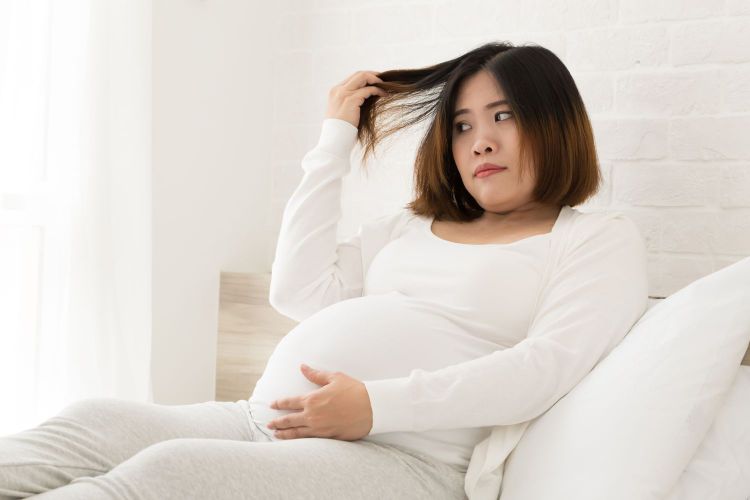 Deciding to start your journey toward becoming a parent is an exciting time for most women. The planning, happy memories, and stories shared with generations of women, picking out toys and clothes for the new arrival, telling your family, and sharing those first kicks with your partner is a magical times.
Deciding to start your journey toward becoming a parent is an exciting time for most women. The planning, happy memories, and stories shared with generations of women, picking out toys and clothes for the new arrival, telling your family, and sharing those first kicks with your partner is a magical times.
For many women, though, there are some severe downsides to pregnancy that they may not have expected. One of the most common is hair loss.
Table of Contents
Managing Hair Loss During Pregnancy
There are three primary causes of hair loss during pregnancy: hormonal changes, nutrition changes, and raised stress and anxiety levels.
Hormonal Changes
During pregnancy, your body produces massive amounts of estrogen hormone to help your body prepare for the baby’s arrival.
The estrogen travels through your bloodstream to the hair follicles and triggers them to stop producing another hormone called androgens, which are hormones that help keep your hair healthy. This also means that new hair growth comes to a halt.
If you’re experiencing shedding hair during pregnancy, you first must talk to your doctor. Hair loss can be concerning, and there are some steps you can take before any medical decision, like booking an appointment with a hair transplant clinic.
Nutritional Changes
Getting enough nutrients from food is another major component of hair loss during pregnancy. Fortunately, there are some ways to combat this problem:
It is important for women who experience hair loss to find out about their diet and weight gain during pregnancy and be aware of the potential impact on hair growth.
In small studies, doctors found that following a well-balanced diet during pregnancy was linked to less hair loss.
Stress and Anxiety
Many women who experience hair loss are more anxious and stressed during pregnancy, which can also lead to regular shedding. Often, this is a concern for women over the age of 30 but is still important for younger women too.
The first step in managing anxiety during pregnancy is to trust the recommendations from your doctor or midwife. If you’re feeling anxious about hair loss, a therapist can help you develop coping strategies to deal with your anxiety.
You may also want to explore other coping methods, such as exercising, spending time with friends or family, and getting enough sleep.
How to Prevent Hair Loss During Pregnancy
The best way to prevent hair loss during pregnancy is to talk to your doctor, who will be able to evaluate the extent of your hair loss and recommend coping strategies that are best for you. This might mean changing up your supplement routine, learning stress management techniques, or possibly taking medication to help ease hormonal issues.
Pregnancy can be a stressful time, mentally and physically. Even though you can do nothing about it, the best advice is to try to stay calm as much as possible. It may help if you also have a friend or family member around who can help distract you when anxiety strikes.
In general, it is always recommended that women take special care of their bodies while pregnant and ensure they get enough rest to enjoy the time with their families before and after the baby arrives.






